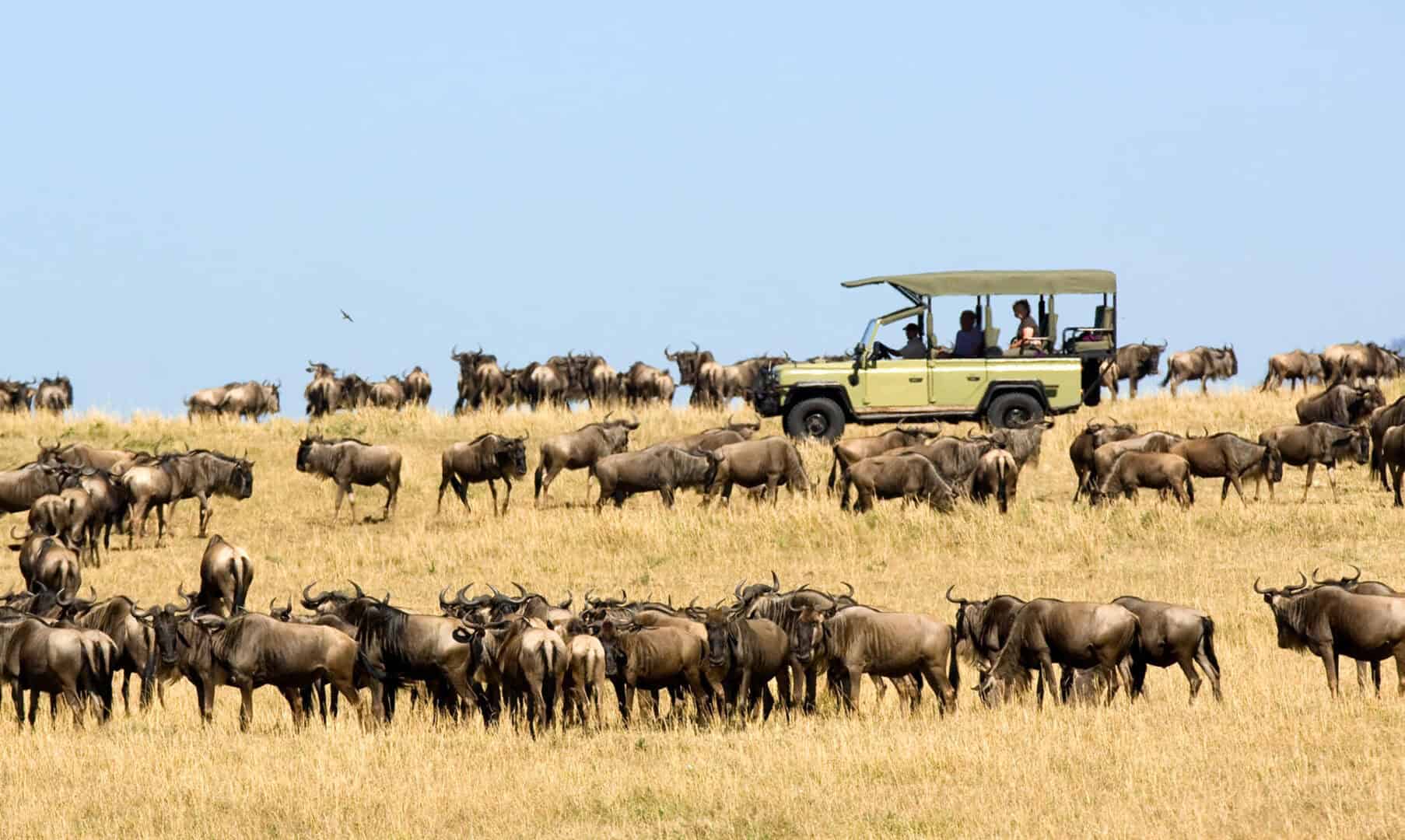A Tanzanian safari offers a captivating blend of rich wildlife, cultural experiences, and stunning natural beauty.
Tanzania is home to some of Africa’s most iconic landscapes, including the Serengeti, Ngorongoro Crater, and Mount Kilimanjaro.
Whether you’re planning to witness the Great Migration or explore the remote wilderness of Ruaha National Park, we tailor safari experiences to suit a range of budgets, ensuring that every traveller enjoys an unforgettable journey.
When planning your trip, remember that international flights are a significant part of the overall cost and are not included in the quoted safari prices.
Key Factors for Setting Your Budget
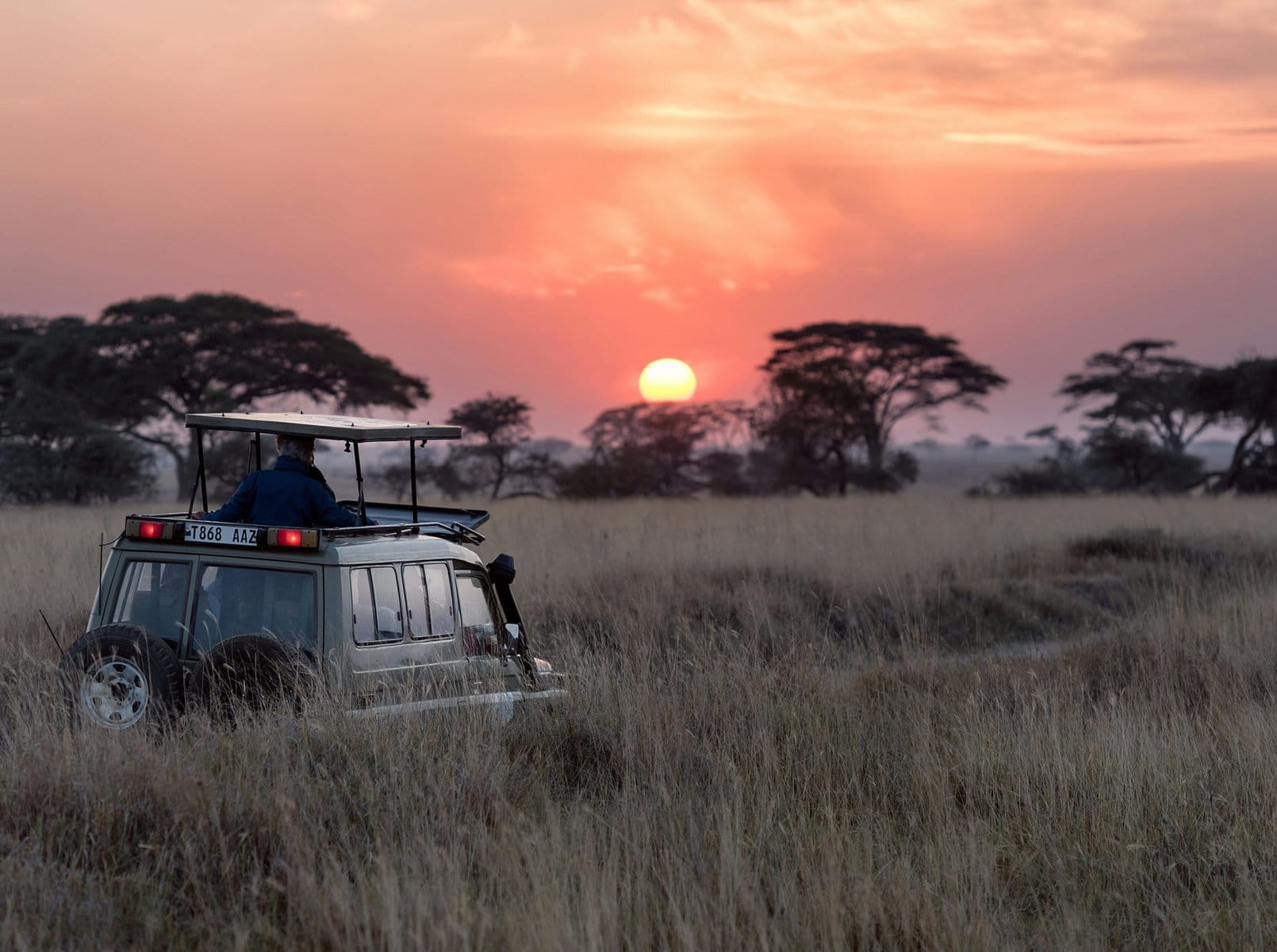
At Discover Africa, we ensure that our pricing is clear and straightforward, with no hidden fees.
Inclusive Estimates, No Hidden Fees
Our Safari Cost Estimator provides all-inclusive estimated pricing for Tanzania, covering park fees, conservation fees, and all necessary levies. Our expert travel consultants are on hand to help you determine your exact safari budget based on your expected levels of comfort and safari experience.
This allows you to plan your safari with confidence, avoiding unexpected expenses.
Destination:
The vast Serengeti National Park and stunning Ngorongoro Crater are top-tier destinations with higher costs, especially during peak migration periods.
Southern and western parks, like Nyerere and Ruaha, offer more exclusive and less crowded experiences, while Mahale and Rubondo are perfect if you want to experience chimpanzee trek.
Accommodation:
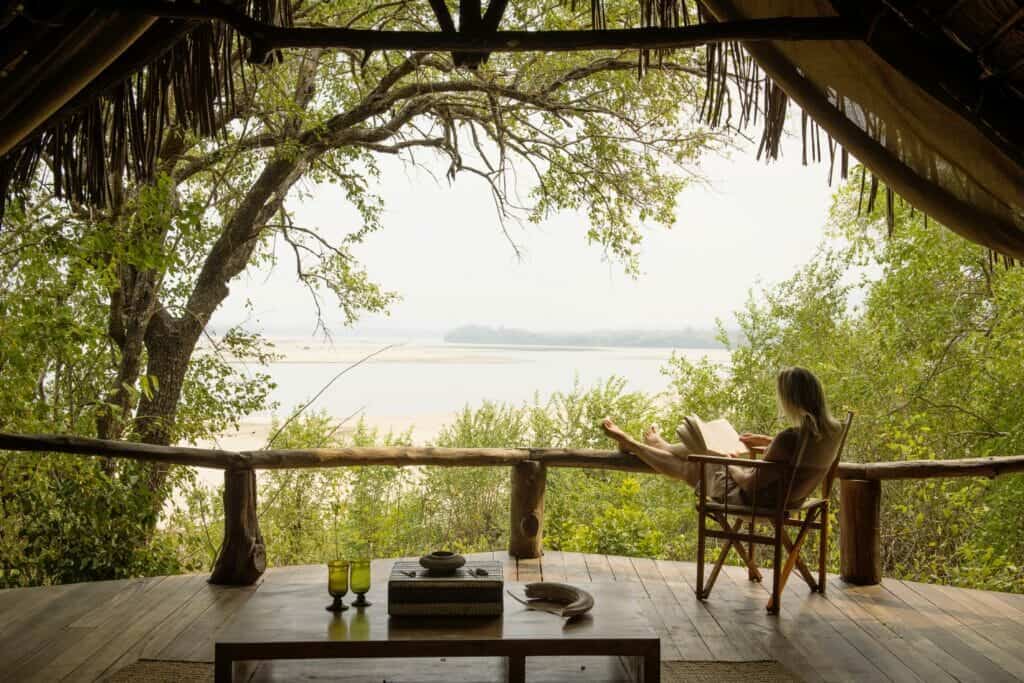
Accommodations in Tanzania are a major factor in your safari budget and significantly impact your overall costs.
In Tanzania, prices range from $400 per person per night in comfortable lodges to $2,500 per person per night in luxury camps, depending on the location and season. It is important to note that while the Serengeti and Ngorongoro Crater have a few large hotel-type lodges that cater to large groups and budget tours, we prefer to work with smaller lodges, tented properties, and migration camps that offer a more exclusive and luxurious experience.
Tanzania has a wide range of locations to experience, depending on what you want to experience, from Tarangire or Nyerere to iconic stays in destinations such as the Serengeti and Ngorongoro Crater, especially during the Great Migration.
Time of Year:
Peak season (June to October) coincides with the Great Migration, increasing costs. Low season (April and May) offers reduced rates, often up to 50% lower.
Duration:
The length of your safari directly impacts the total cost.
While a longer stay increases accommodation costs, it can enhance your overall experience by allowing you more time to explore Tanzania’s major regions.
It’s useful to note that some of our preferred partner lodges offer discounts for longer stays during the low season.
Group Size:
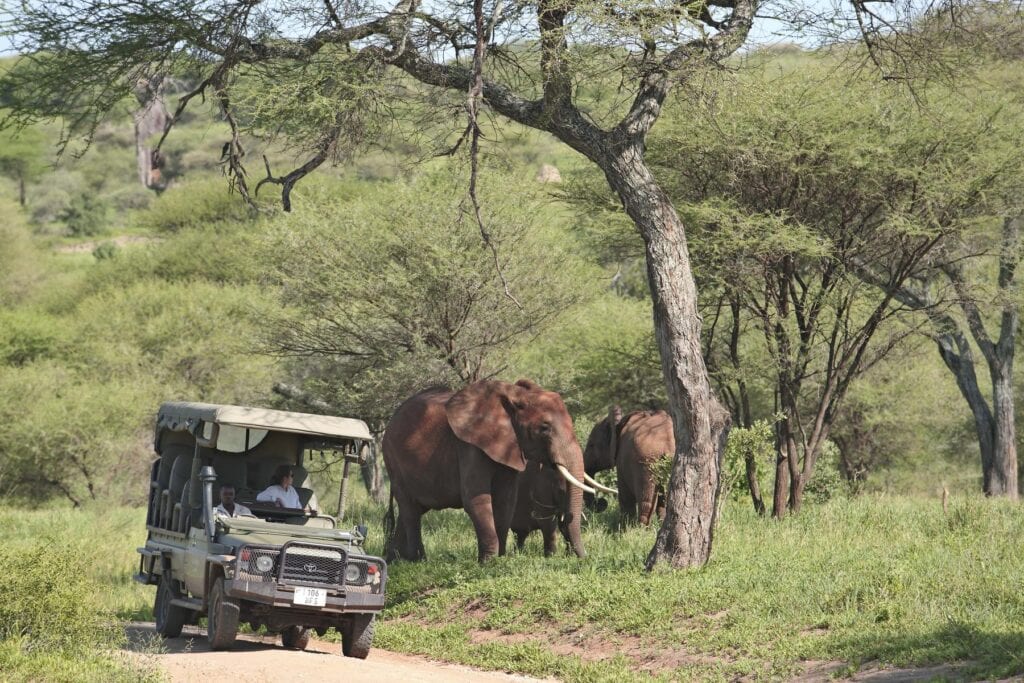
Scheduled, non-private group departures can be more affordable than private safaris. Our expert advisors can help you plan your private safari according to your budget, offering a more bespoke experience but at a higher cost.
Type of Safari:
If you decide to travel to Tanzania, you can choose from diverse safari options, each with distinct costs.
Guided safaris, where a professional guide accompanies you throughout, typically start at $850 per person per day.
Fly-in safaris, ideal for covering extensive areas like the Serengeti and Ngorongoro Crater quickly, can range from $800 to $1,200 per person per day, depending on the level of luxury.
Activities:
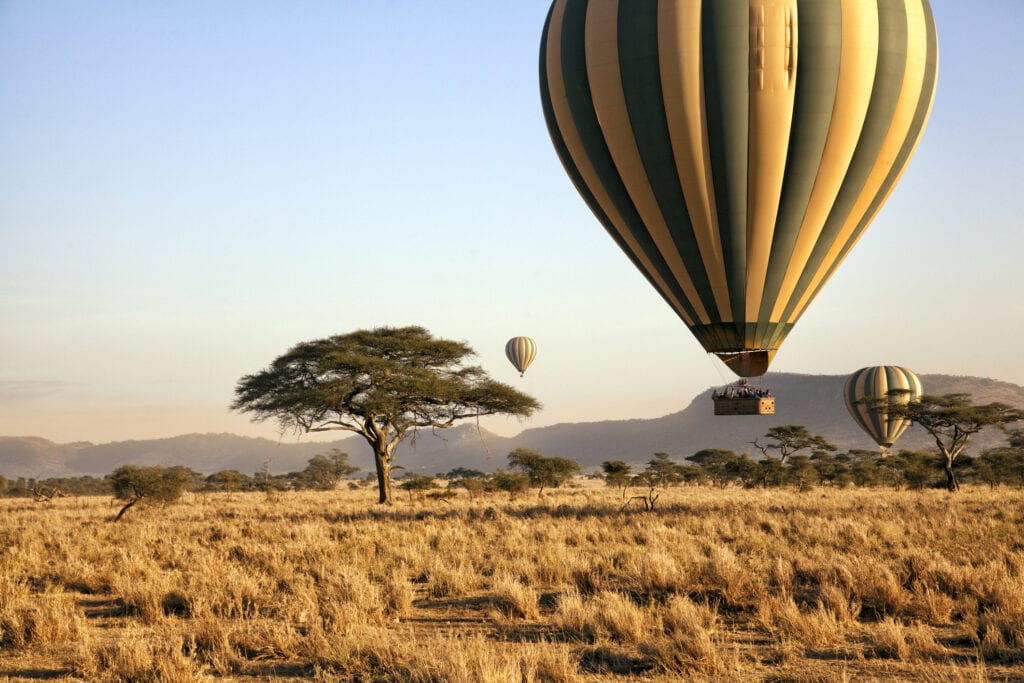
To enhance your Tanzanian safari experience, consider adding special activities such as hot air balloon safaris over the Serengeti, which cost between $450 and $600 per person.
Bush walking safaris in areas like the Ruaha Game Reserve can range from $150 to $250 per person, offering a unique perspective.
Cultural tours to Maasai villages or local markets can cost around $100 to $200 per person, providing insight into the rich culture of Tanzania.
Park Fees and Permits:
Entry fees for Tanzania’s iconic parks contribute significantly to conservation efforts. For example, Serengeti National Park and Ngorongoro Crater charge around $60 to $70 per person per day. The fee to descent in the Ngorongoro Crater is $300 for the vehicle.
Keep in mind that some outfitters add their own conservation and community levies, which will be in addition to the quoted price, depending on the camp. These fees are compulsory and are added directly.
Travel and Transfers:
Given Tanzania’s vast size, internal flights are often necessary to connect different safari regions. Domestic flights can cost between $300 and $500 per person per leg, depending on the distance and airline.
You also have the option to choose a private vehicle with a safari guide from $500 per day and can accommodate up to seven people. $100 to $200 per trip, depending on the distance and type of transfer.
Meals and Drinks:
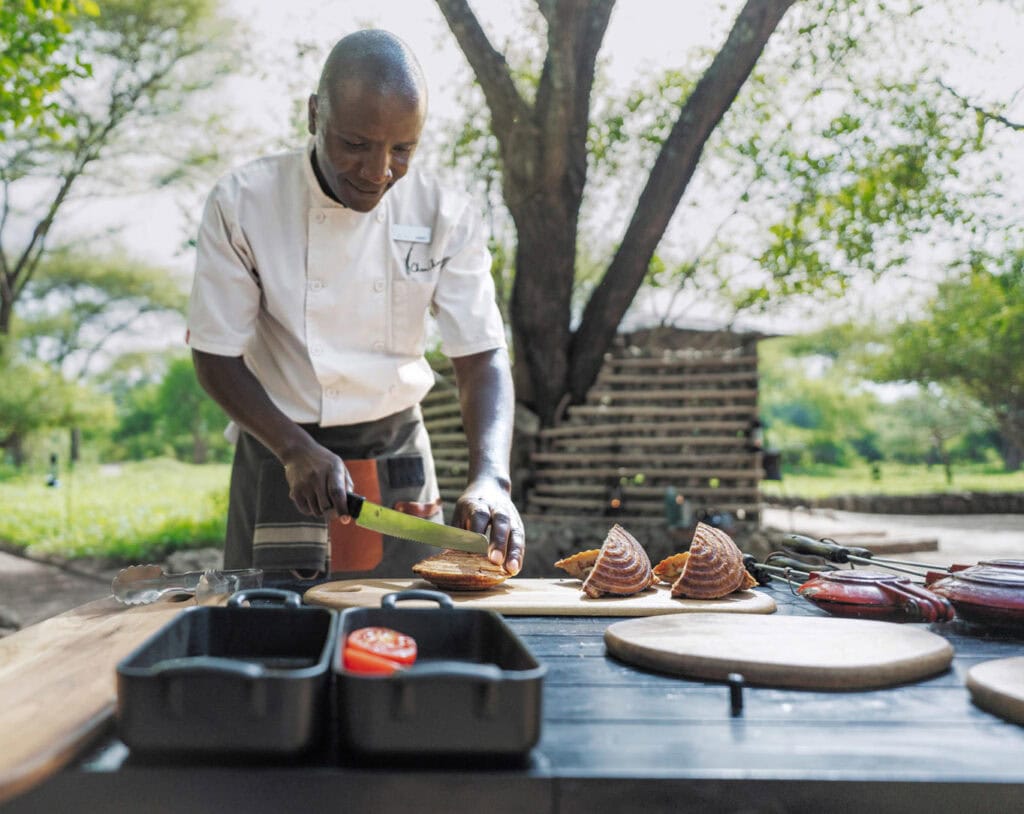
Most lodges in Tanzania offer full board options, including three meals a day and often some drinks.
High-end lodges offer more inclusive packages that cover premium drinks and additional services like laundry, while mid-range lodges might only include basic meals and local drinks.
Our travel consultants can help ensure you know what you’re paying for while dining in Tanzania.
Travel Insurance:
Comprehensive travel insurance is crucial for covering potential medical emergencies, trip cancellations, or other unexpected issues during your Tanzania safari.
We do not sell travel insurance directly, but our travel experts can provide guidance if needed.
Insurance typically costs between $75 and $200, based on the level of coverage and the length of your stay.
Tipping and Gratuities:
While not compulsory, tipping in Tanzania is voluntary and should depend on the quality of the service. We encourage guests to see this as a way to show appreciation and support for the community. Our guidelines suggest $10 to $20 per person per day for guides and about US$5 to 10 per guest per day for the general staff (tips are usually split amongst the staff).
Most places have a ‘tip box’ for staff (excluding guides), allowing you to leave a collective tip and tip your guide separately. Tip once at the end of your stay at each lodge or camp.
Visas and Vaccinations:
There are currently no vaccinations required to enter Tanzania. Tanzania requires a valid yellow fever certificate for all visitors over 1-year-old coming from or transiting through infected areas (Republic of Congo, Kenya and Uganda).
Additionally, consider any necessary vaccinations for malaria prophylaxis to safeguard your health during your trip. Another aspect to consider is Tanzania’s visa requirements.
Personal Expenses:
Set aside a budget for personal expenses such as souvenirs, additional activities, and incidental costs. This could range from $50 to $300, depending on your shopping preferences and any extra experiences you wish to include in your safari.









